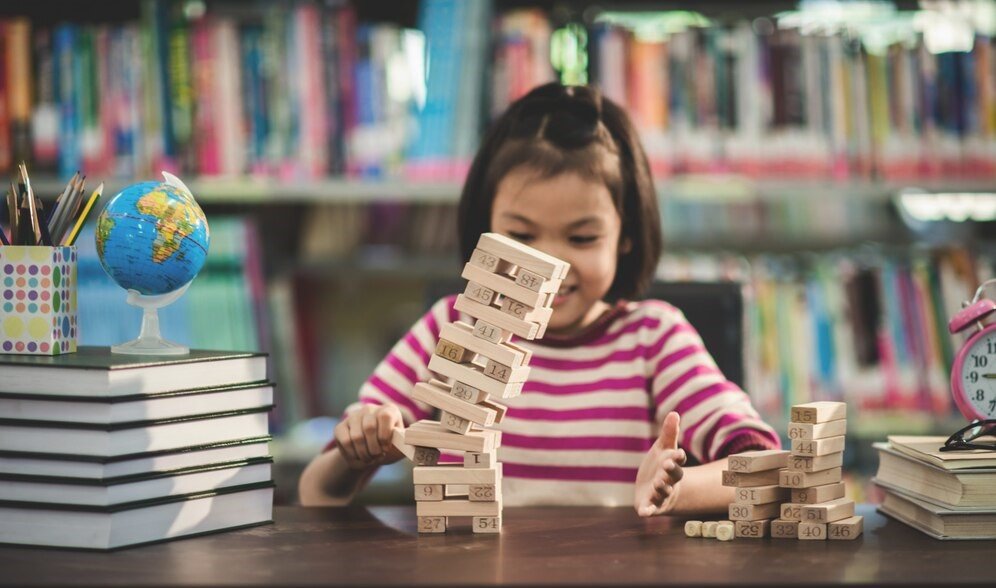Delhi World Public School, Greater Noida

In this ever-evolving world we need to evolve the way we teach our children. Rote memorization and one-size-fits-all are a thing of the past. Now, the focus is more and more on child-centered learning, an educational philosophy that puts each student's needs, interests, and abilities at the center of the learning process. This change in focus brings forth a bounty of advantages, fostering not only academic achievement but also well-rounded, confident, and invested individuals. Being one of the top schools in Greater Noida, we remain dedicated to ensuring your child's academic success. Adhering to a regular curriculum that not only provides a solid academic grounding but also sets the stage for socio-emotional and intellectual growth. One of the strongest benefits of child-centered learning is the capacity to create an actual love of learning.
When children are empowered in their education, when curiosity is nurtured and questions are honored, they become engaged learners and not mere recipients of information. Then learning is no longer a task but rather an inspiring adventure, motivated by their own internal drive. This inner motivation results in greater comprehension, better retention, and an enduring dedication to cultivating intellectual development. In addition, a child-centered strategy accommodates multiple learning styles and tempos.
Every child has his or her own individual path of learning. Comprehending that all children learn in their own manner, teachers use multiple teaching techniques, materials, and activities. For instance, visual learners may work with diagrams and videos, and kinesthetic learners learn through hands-on experimentation and physical activity. This individualized strategy allows each child to feel recognized, comprehended, and encouraged, allowing them to reach their full potential and not be left behind. All this only at Delhi World Public School, one of the best schools in Greater Noida. Apart from academics, child-centered learning is vital to foster important social and emotional competencies.
Joint projects, group discussions, and peer-to-peer learning opportunities promote communication, collaboration, empathy, and conflict resolution. Kids learn to listen and accept various points of view on an issue, express their own thoughts, think about their ideas and collaborate towards a common objective. These are not only essential for academic and professional success in the future but also for coping with the intricacies of social interactions in life. Additionally, this method develops critical thinking and problem-solving skills.
Rather than memorizing facts, children are encouraged to pose "why?" and "how?" questions. They are given open-ended questions, scenarios from everyday life, and choices to try various solutions. Such pedagogy challenges them to think and come up with novel ideas and solutions to overcome difficulties. It creates the foundation of a solution-minded approach which relentlessly challenges learners to think in innovative ways and implement novel ideas. This promotes a spirit of inquiry, makes them capable of critically analyzing information, and enables them to address challenges on their own and in a creative manner. With the best teachers on board, we provide each student with equal opportunity and stimulation to develop their curiosity. They are taught to accept their strengths and weaknesses so that they can take up tasks that test their physical and mental endurance.
Child-centered learning also creates confidence and self-worth. When children feel they are important, their input counts, and their unique strengths are acknowledged, they feel more confident about themselves. The emphasis shifts away from merely measuring performance using standardized tests to building up individual effort and achievement. Such a positive learning climate minimizes anxiety, promotes risk-taking, and enables children to have faith in themselves.
Research studies have discovered that the child centered approach to learning maximizes positive learning outcomes for developing children. A tailored approach that lays strong emphasis on holistic learning and takes into account learning styles of children could be what we require to bring up a generation of engaged learners who are interested in learning and comprehension as opposed to rote memorization and routine recall of the course material.
By making the unique interests and needs of each child a priority, we foster a passion for learning, respond to individual styles, build social and emotional development, build critical thinking skills, and foster confidence. By embracing this teaching philosophy, we're not only enhancing academic success; we're developing well-rounded, active, and empowered students who are poised to succeed in a rapidly changing world. It's about discovering the special talents in every child and laying the foundation for a better future.